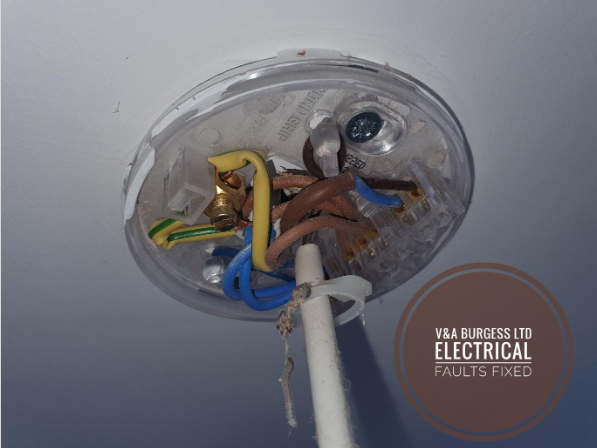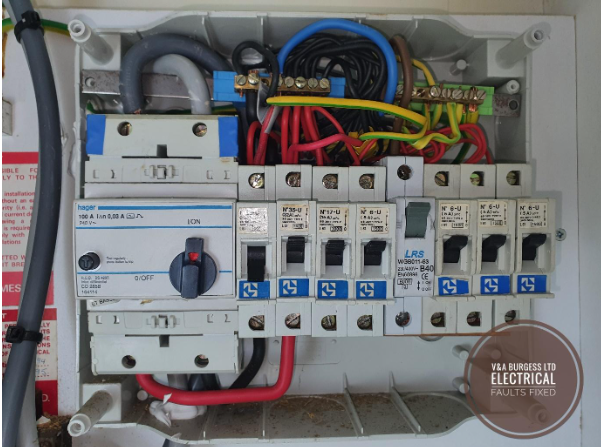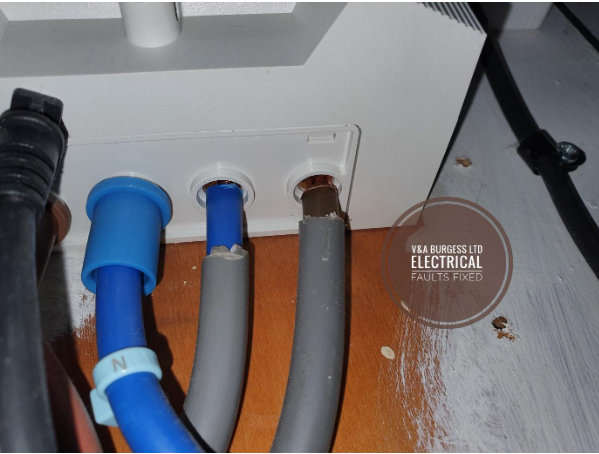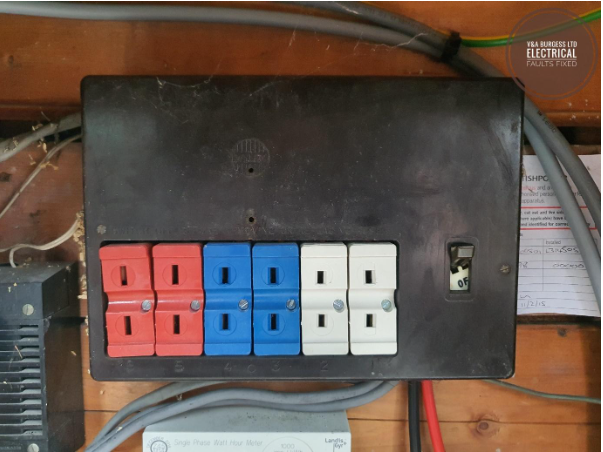Do I need an Electrical Certificate to sell my house UK - Electrical Faults Fixed
Table of Contents
- Ensuring Electrical Safety When Selling Your Home: A Complete Guide
- Do I Need an Electrical Certificate to Sell My House?
- What Electrical Paperwork Might I Be Asked For?
- What Are the Contents of an EICR?
- Why Is Electrical Certification a Good Idea for Sellers?
- What Happens If My Property Fails an EICR?
- Selling a Property with Faulty Electrics
- Conclusion: Do I Need an Electrical Certificate to Sell My House?
- Frequently Asked Questions
1) Ensuring Electrical Safety When Selling Your Home: A Complete Guide
When selling a residential property, ensuring electrical safety is an aspect that can affect both the selling process and buyer confidence. A property's electrical installation must meet current safety requirements and wiring standards (BS7671) to avoid potential hazards such as faulty wiring, electric shocks, or even electrical fires. While it is NOT a legal requirement to have an Electrical Installation Condition Report (EICR) to sell a house, ensuring your electrical system is safe can provide prospective buyers with peace of mind.
As a qualified electrician and electrical lecturer, I often advise homeowners to address any electrical issues beforehand to streamline the sale process. Older properties or those with outdated systems, such as old fuse boxes, may present safety risks or lack compliance with wiring regulations and / or Part P of the Building Regulations.%20
Identifying and resolving these concerns early can be a good idea to avoid last-minute complications. Property sales can fall through if vital systems in the home such as wiring, are found to be defective.
Back to top2) Do I Need an Electrical Certificate to Sell My House?
If you're wondering, "do I need an electrical certificate to sell my house", the simple answer is NO.%20
An EICR (Electrical Installation Condition Report) is not a legal requirement for selling a house. Note, it is not an EICR certificate but a technical REPORT. An EICR can be requested during the conveyancing process, particularly by a buyer’s solicitor, estate agent, or mortgage lenders. This is especially true if the property’s electrical system is outdated or if there are concerns about its safety.

(PHOTO: Pendant light cover removed for inspection and testing on an EICR)
A home surveyor will not generally inspect the wiring system but will likely make note if the electrics look particularly old.
A valid electrical certificate (like an EICR) ensures the property complies with current safety standards, reassuring potential buyers that the electrical installation is free of immediate hazards. While not mandatory, providing an EICR can smooth the transaction process and boost buyer confidence.
In some cases, local authorities or insurance companies may request an electrical inspection to ensure safety requirements are being met, especially for older properties or homes with newly installed electrical work. By obtaining an EICR, home sellers can streamline the process and potentially avoid price negotiations due to undisclosed electrical hazards or electrical problems.
Back to top3) What Electrical Paperwork Might I Be Asked For?
When selling your property, you may be asked to provide certain electrical certificates or documentation to prove the safety and quality of the property’s electrical system. Here are the key documents you might need:
- Electrical Installation Condition Report (EICR): A detailed inspection report highlighting the condition of your property’s electrical installation, including potential hazards and necessary repairs.
- Electrical Installation Certificate: Issued for new circuits or significant electrical work such as rewiring or consumer unit changes, this certificate demonstrates that the installation meets current standards.
- Minor Electrical Installation Works Certificate: This document covers small changes or repairs made to your property’s electrical system.%20
- Part P Certificate / Building Control Notification: If electrical work has been carried out in a special location such as a shower room or room containing a bath, compliance with Part P of the Building Regulations is required. The work should have an associated electrical certificate and building control notification certificate
- PAT Certificate: Issued when portable appliances are involved. If any portable appliances are included in the sale of the property, then you may be asked for an up-to-date PAT test certificate for each appliance.
Providing the necessary documentation reassures buyers, their solicitors, and mortgage lenders that the property is safe and up to standard. If you do not have these documents, a professional electrician can inspect your system and issue the appropriate certification.
Back to top4) What Are the Contents of an EICR?
An Electrical Installation Condition Report (EICR) is a comprehensive document issued by a qualified electrician following an electrical inspection. It identifies any faults, risks, or non-compliance with safety standards. The main sections of an EICR include:
- Identification of Potential Hazards: This includes faulty electrics, outdated equipment, or issues that could lead to electric shocks or fires.
- Observations and Recommendations: A clear breakdown of the issues found and the remedial work required to meet safety standards.
- Codes for Action:
- C1: Immediately dangerous situations, requiring immediate attention.
- C2: Potentially dangerous situations, needing urgent remedial work.
- C3: Improvement recommended but not urgent.
For more information on electrical codes please check our specialised article.
- Inspection of Areas of the Property: Includes consumer units, fuse boxes, wiring, sockets, and any electrical equipment within the home.
Validity and Certification: A declarative document confirming whether the electrical installation meets current safety standards.

(PHOTO: The cover of a consumer unit removed for inspection during an EICR)
An EICR is particularly valuable for older properties or homes that have undergone DIY electrical work, as it ensures the property’s electrical installation complies with required standards. An EICR may indicate that a property would benefit from rewiring and if the report lists extensive issues with the wiring installation, it may be wise to consider a rewire.
Back to top5) Why Is Electrical Certification a Good Idea for Sellers?
While it may not be legally required, obtaining an electrical certificate before selling your home is often a good idea. It shows prospective buyers and estate agents that you take electrical safety seriously, increasing their confidence in your property. A valid EICR can also:
- Help identify necessary repairs early in the process.
- Prevent delays in the conveyancing process caused by safety concerns.
- Reduce the risk of price negotiations due to electrical hazards or lack of compliance.
- Provide buyer peace of mind and demonstrate compliance with legal obligations.
If the property’s electrical work has been carried out by the previous owner, an EICR ensures that it meets current safety requirements. In some cases, indemnity insurance policies may be used to cover any legal implications resulting from a lack of building regulations compliance. An indemnity policy is unlikely to cover you if there is poor workmanship uncovered on the electrical system. Indeed, your home insurance may not even cover this!

(PHOTO: A C1 and C2 Hazard discovered on an Electrical Inspection. Unsatisfactory EICR)
Back to top6) What Happens If My Property Fails an EICR?
If your property fails an EICR (Unsatisfactory), the report will highlight the areas requiring attention. The next steps include:
- Hiring a Registered Electrician: A licensed electrician can carry out the necessary steps to resolve the identified issues. Check your electricians qualifications and registration by visiting the NICEIC website.%20
- Remedial Work: This may involve repairing faulty wiring, upgrading the consumer unit, or addressing safety hazards.
- Issuing of New Documentation: After completing the remedial work, the electrician will provide a completion certificate or updated EICR.
It is worth noting that mortgage lenders or buyer’s solicitors may insist on evidence that the required repairs have been carried out. Failing to address the issues could affect the asking price or even jeopardise the sale process.
Back to top7) Selling a Property with Faulty Electrics
If your property has an old fuse box , faulty electrics or lacks the necessary documentation, you may face challenges during the selling process. However, solutions are available:
- Provide transparency about the condition of the electrical installation.
- Offer to carry out the required repairs before completing the sale.
- Consider a reduction in asking price to accommodate the cost of electrical work. Perhaps obtain three quotes to carry out repairs.
Local council building control or indemnity policies may help resolve legal concerns if the property lacks certain certificates. Additionally, you can direct buyers to the NICEIC website to find a registered electrician for further inspections

(PHOTO: An old fuse box like this may result in an unsatisfactory EICR)
Back to top8) Conclusion: Do I Need an Electrical Certificate to Sell My House?
Do I need an electrical certificate to sell my house? While an EICR or other electrical certification is not always a legal requirement, it can significantly enhance buyer confidence and streamline the conveyancing process. Do I need an electrical certificate to sell my house? While it isn’t mandatory, providing one can prevent delays, maintain the property’s value, and give potential buyers the confidence to proceed.
For home sellers, understanding the legal obligations and safety requirements associated with your property’s electrical system is key to a successful and smooth transaction. By taking the necessary steps and providing the appropriate documentation, you can avoid delays, maintain the property’s value, and give potential buyers the confidence to proceed
Back to top9) Frequently Asked Questions
9.1) What are consumer units?
The consumer unit is the brains of the electrical systems and performs many vital and different tasks. You can read all about consumer units in our huge and extensive article. If you have any further questions then just get in touch.%20
9.2) How much does rewiring cost in 2025?
You should expect rewiring to cost around:
£4000 - £6000 for a flat
£5500 - £6500 for a three-bedroom house
£6000 - £8500 for a four-bedroom house
£8500 - £11000 for a five-bedroom house
Price will vary and depend upon various factors including access to property, access to floorboards and loft spaces, the number of socket outlets, switches, and other electrical accessories that you require and more.%20
9.3) What happens if I get an unsatisfactory EICR?
Nothing happens. No-one will force you to put the issues right unless you are planning to rent your property. The buyer may request a reduction or request that issues are remedied before completion. Your electrician will, upon request, issue a quote to repair the issues with the electrical installation.%20
%20
Read more articles
- Log in to post comments

